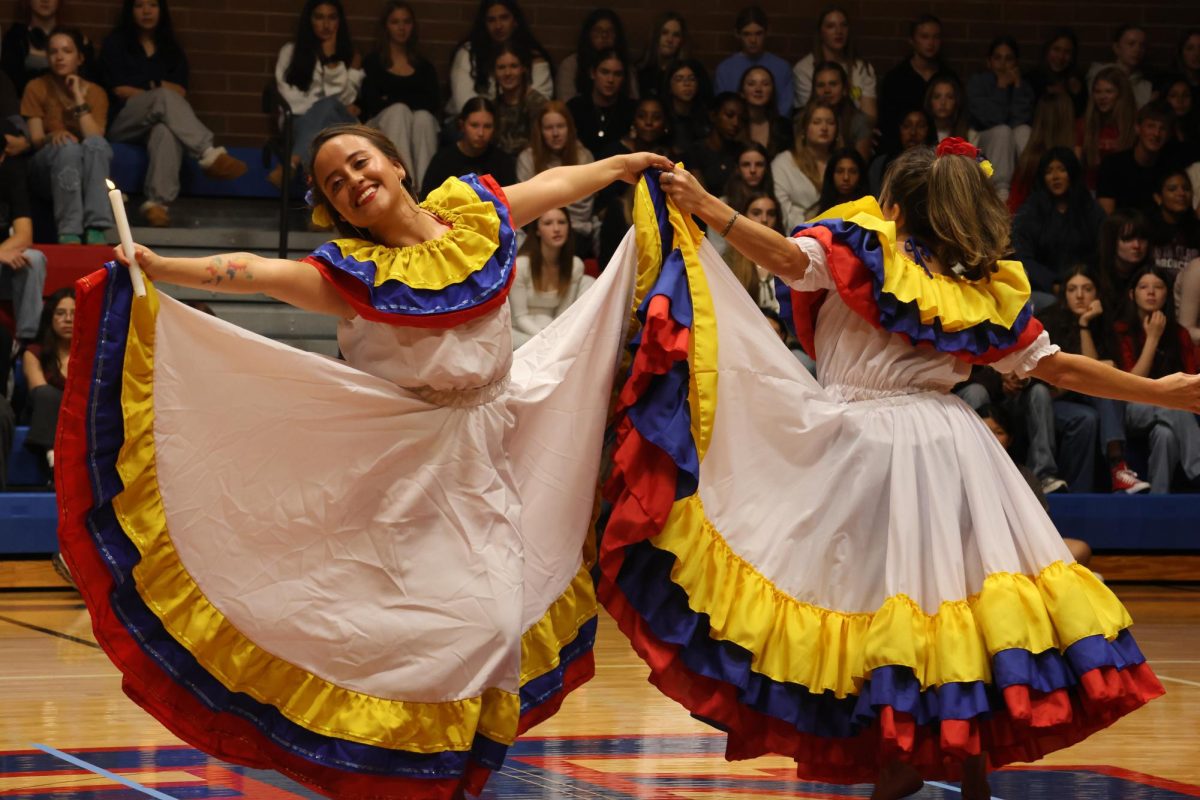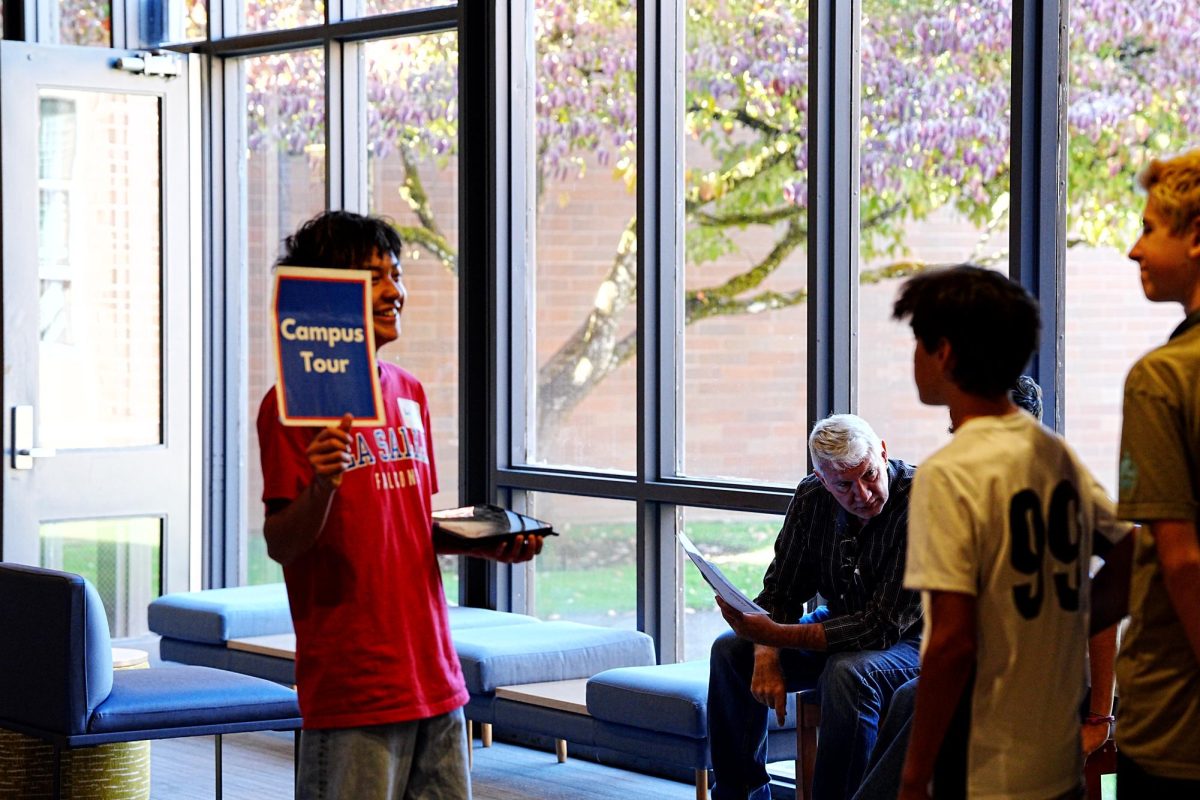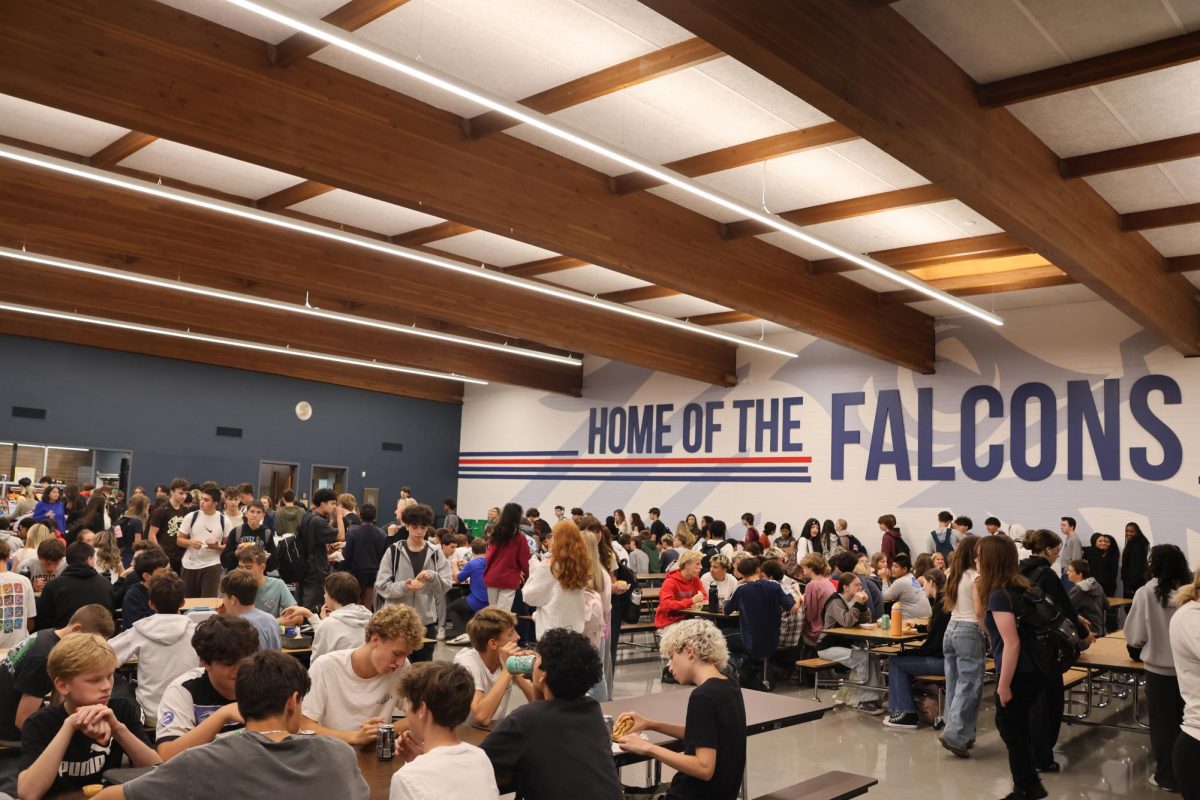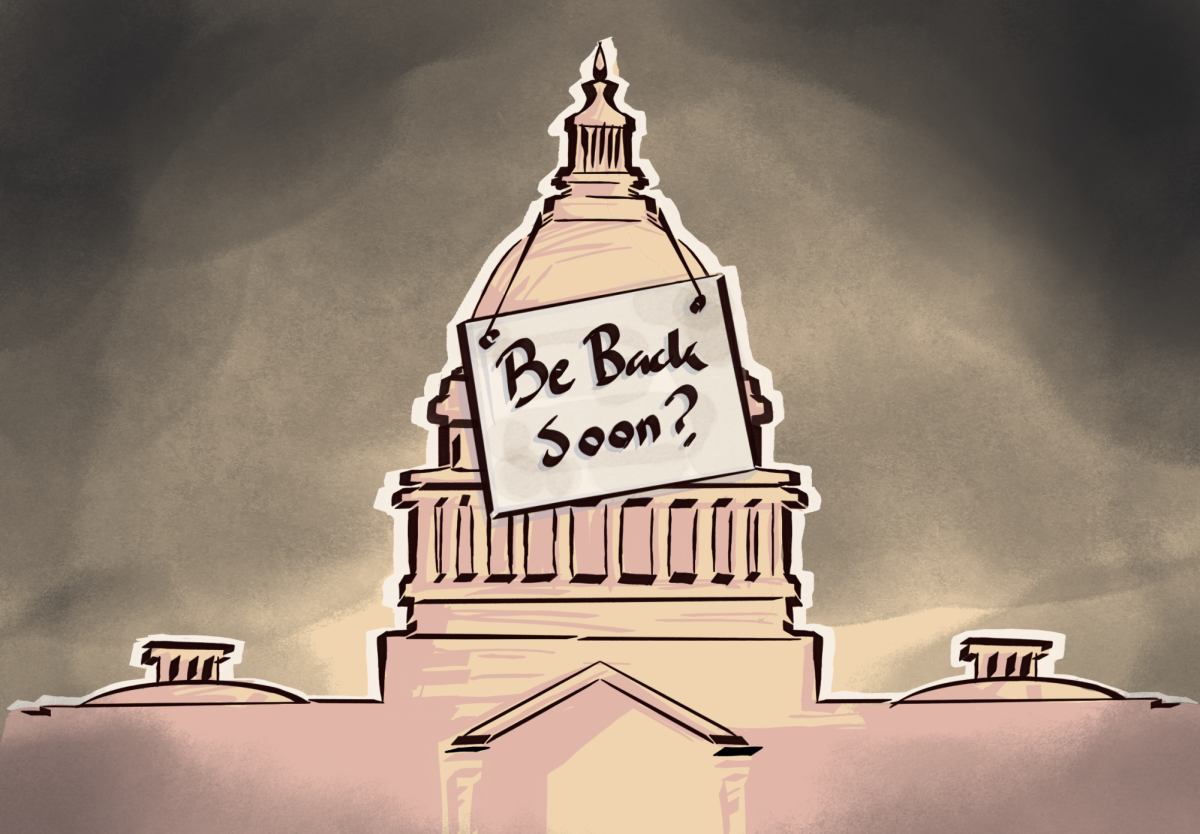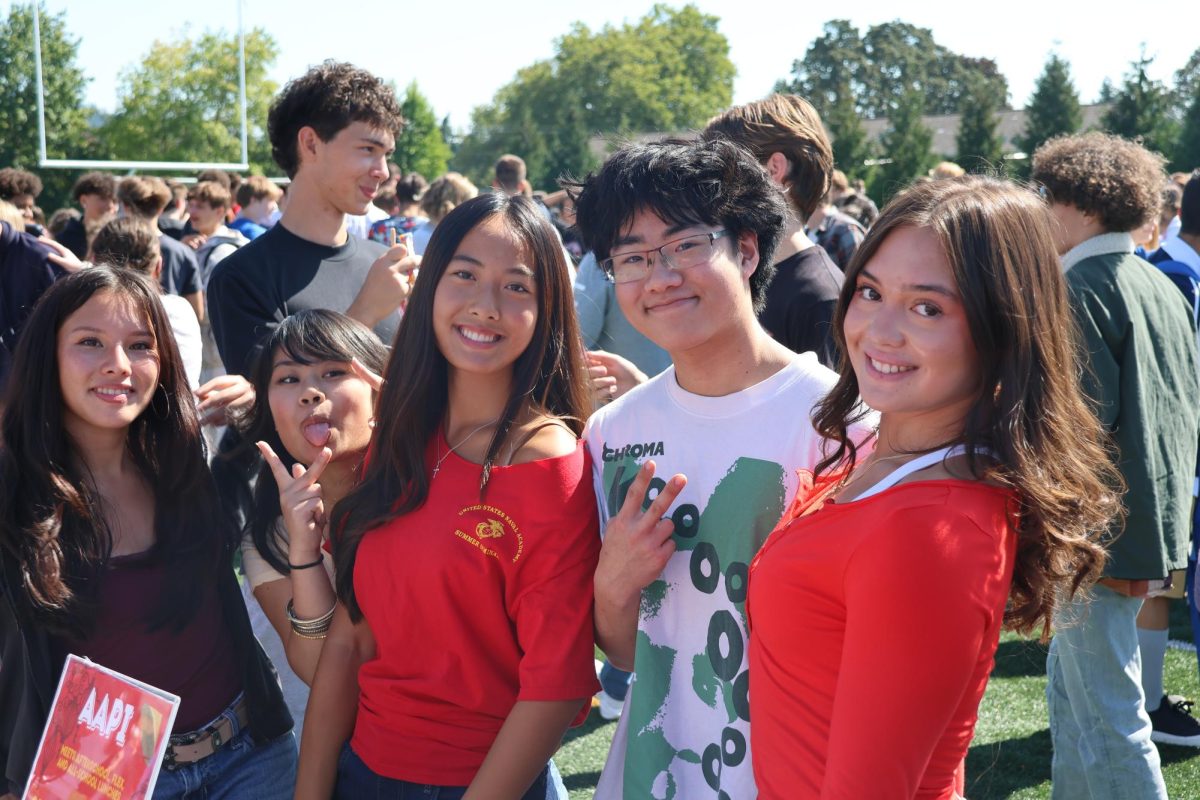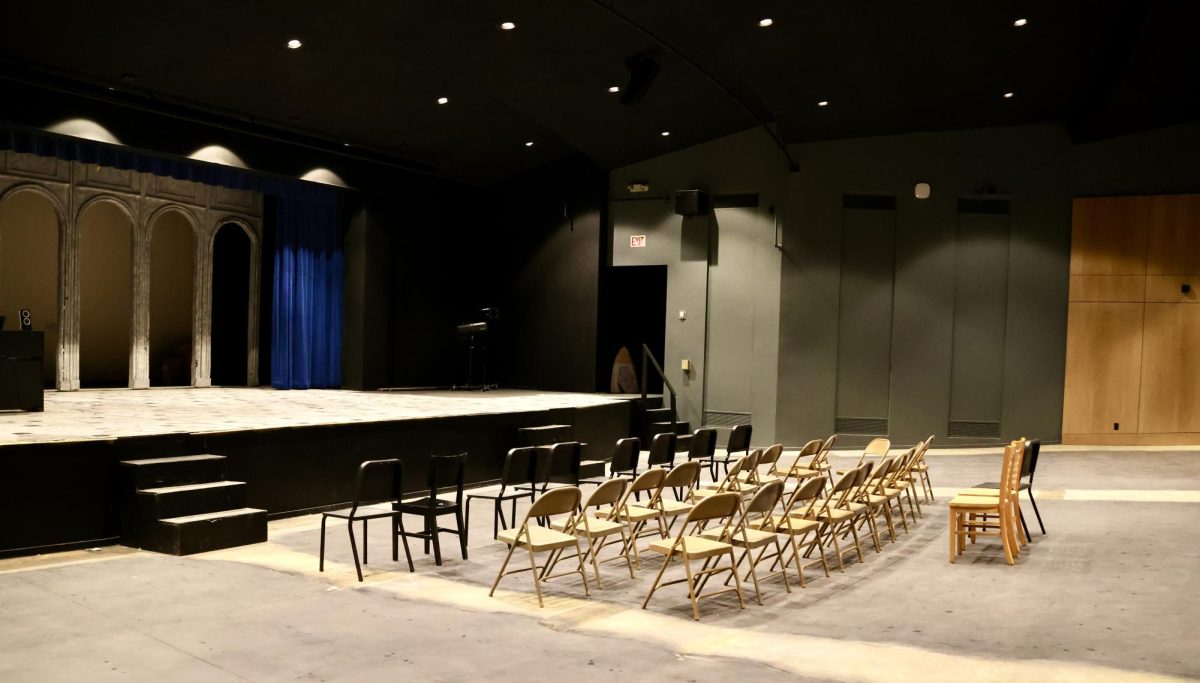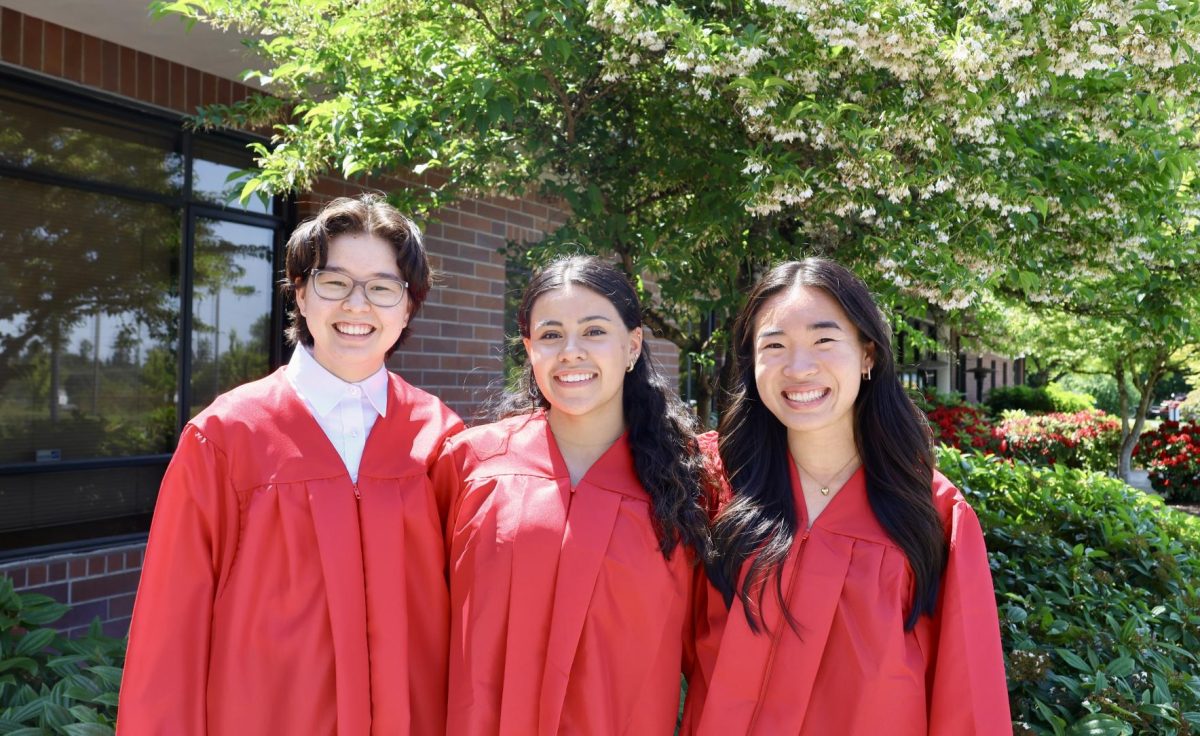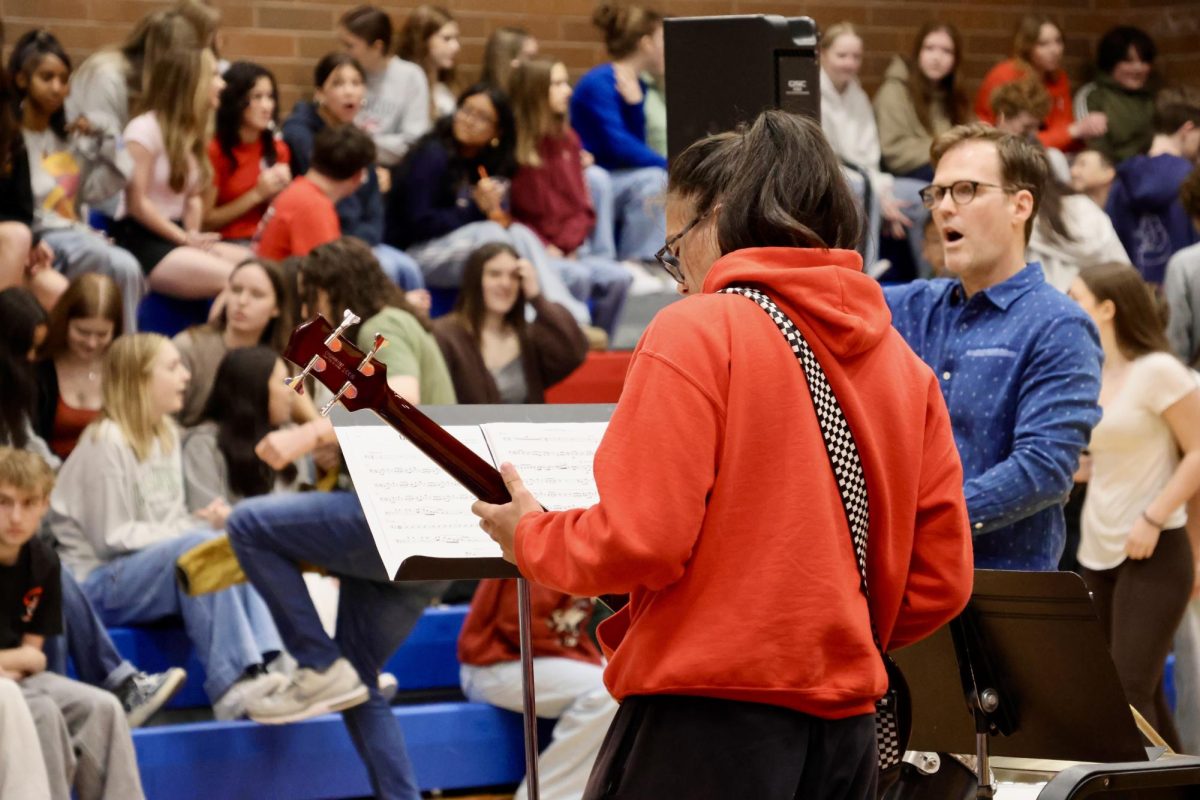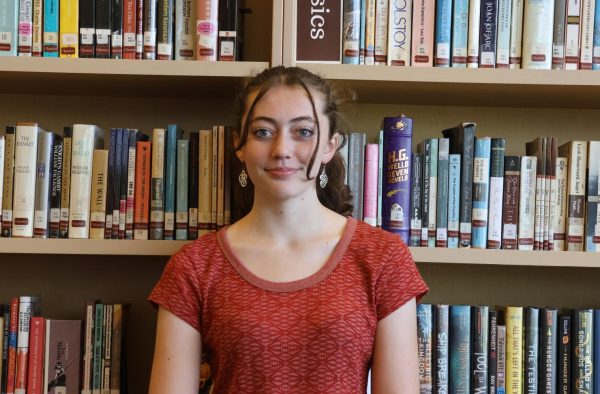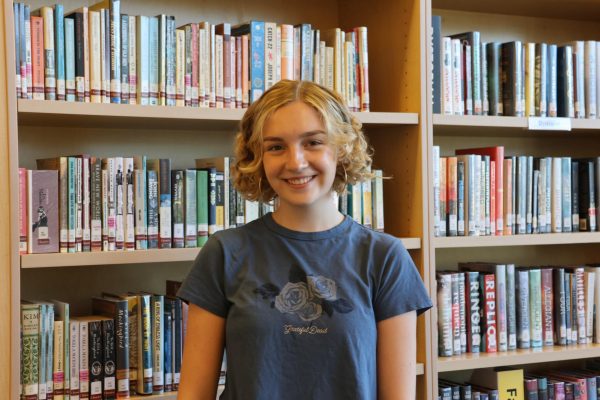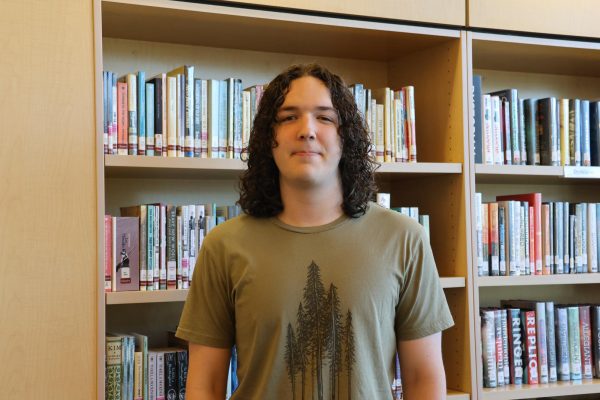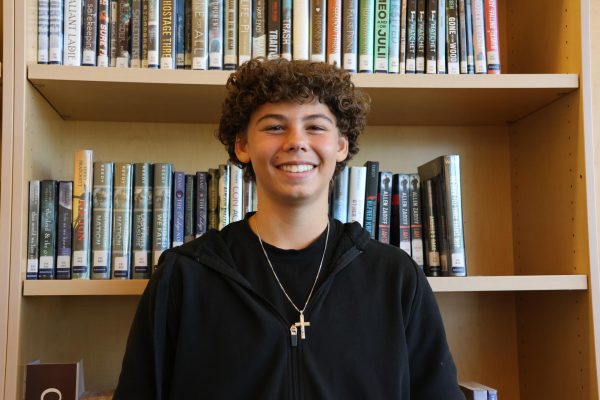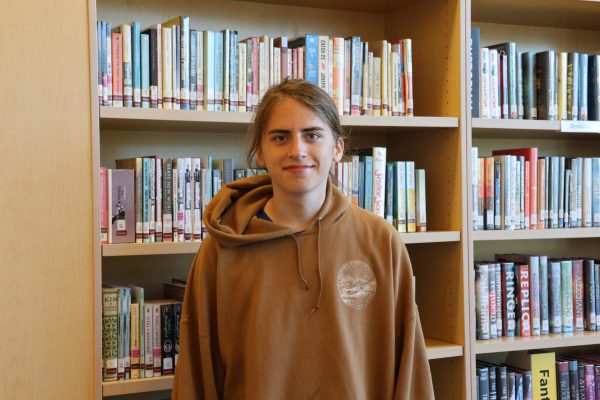On the morning of Thursday, May 8, many students across La Salle, in classes ranging from Honors Biology to U.S. History, were all watching the same thing.
White smoke rising from the chimney of the Sistine Chapel.
Crowds of people in St. Peter’s Square, cheering and waving flags from countries around the world.
And then, what billions around the world had been waiting for: the new Pope Leo XIV’s first steps in his papacy, walking out of the conclave and into a new era for the Catholic Church.
“Everyone should rejoice,” sophomore Daniel Garbitelli said, referencing the phrase that the cardinals use to announce the selected candidate. “Habemus papam, we have a new pope.”
The process of nominating and confirming him had begun one day earlier, when a group of Roman Catholic cardinals gathered to select the next pope of the Catholic Church in a process known as the conclave. The tradition was first established in the 13th century, and in its modern configuration normally takes under four days to complete. This year’s conclave followed that precedent, beginning over two weeks after the death of Pope Francis and culminating a day later with the announcement of his successor on May 8.
Cardinal Robert Prevost, who wasn’t broadly seen as a front runner heading into the conclave, surprised many students and staff when he walked out onto St. Peter’s Basilica as Pope Leo XIV.
That moment sent shockwaves throughout not only the Catholic Church — a community of 1.4 billion people who he serves as the new spiritual leader for — but also the world, with Pope Leo XIV being the first one to come from the United States.
As both staff and students pointed out, that background as an American citizen provides him with a unique opportunity to connect the U.S.’s church with the rest of the world, working not only to build bridges but transcend national issues and speak on broader topics like human rights and social justice.
For many of them, this comes at a particularly important time.
“The most exciting thing is definitely him being from America,” sophomore Gabe Gallares said. “Especially with the state of global politics and what’s going on in the world, I feel like that could be a good opportunity just to help that.”
The selection of Pope Leo XIV, as someone who wasn’t seen as an obvious contender for the position, showcased for Spanish teacher Ms. Amy Gantt the important unifying role he can play for Catholics and communities across the globe.
“The fact that his name wasn’t floated around, but that people rallied behind him indicates to me that it could be a very unifying thing for the Church. That so many other cardinals in the conclave elected him seems that he’s doing something good,” she said. “He’s doing something that’s going to bring so many countries together.”
Highlighting how Pope Leo XIV will be able to act as a moral authority and mediator for a world increasingly divided, Garbitelli echoed this perspective.
“I hope that he is able to lead the church well in the face of a complicated global situation with the various conflicts going on around the world,” Garbitelli said. “I hope he’s able to be a good leader for the church and a beacon of light in a troubled world. ”
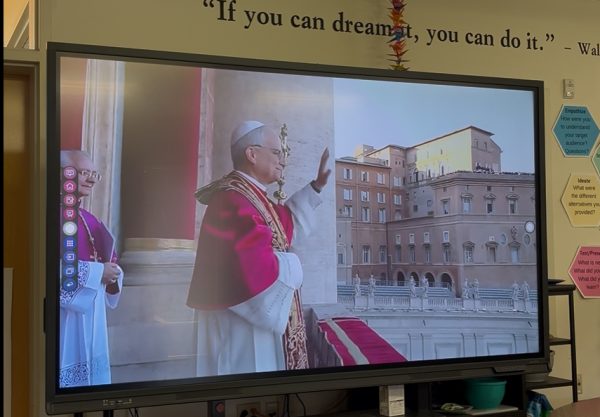
A big part of that leadership, in religion teacher Mr. Noah Banks’ opinion, has been and should continue to be an emphasis on peace.
“A clear kind of central point of his pontificate already [has] been a focus on peace and unity, peace in the world, peace in this Christian understanding of interior peace,” he said. “He’s been really from his first words from the ledge on the balcony at St. Peter’s Basilica, he’s been saying, ‘peace be with you.”’
This emphasis on peace — along with serving the poor and vulnerable — parallels not only Pope Leo XIV’s predecessor but also his namesake, Pope Leo XIII, who pioneered Catholic Social Teaching.
How the new pope plans to build on these legacies while also adapting to the current challenges faced by the Church and the world is something that both staff and students commented on after the announcement, reflecting on the role of the pope not only for Catholicism but society at large.
“I care about the pope promoting justice and preferential option for the poor and vulnerable,” religion teacher Mr. Dan Marcantuono said. “The greatest responsibility of the pope … [is] serving the people rather than the people serving the pope … Pope Francis was deeply concerned with that in most ways, and I think that hopefully Pope Leo will continue to do the same.”
From both Mr. Marc and Religious Studies Department Chair Mr. Edward Kendrick’s perspectives, it’s pivotal that the pope stays true to himself and Catholic teachings while pursuing his goals.
“When I think about, what do I hope the Pope does?” he said. “It’s that he listens to the Holy Spirit, that he follows Jesus, and that he’s close to the Father.”
Principal Ms. Alanna O’Brien echoed this, explaining that beyond serving as a unifying global presence, the pope also has the opportunity to increase connection and conversation across different parts of the Catholic Church.
“It’s important that we first start with listening to each other and leaning into dialogue so that we can maintain our identity as a Catholic Church,” she said. “I appreciate that he talks about love and the importance of love in the Church.”
As a Protestant, Ms. Gantt feels that it’s crucial to recognize the widespread impact that the new pope will have.
“He speaks a greater message,” she said. “And the message is to the Catholic Church, but it’s to human beings as well.”
That message, Ms. O’Brien said, mirrors closely the core values of La Salle.
“I appreciate that he sees the work as taking care of the poor, and that aligns with our Lasallian value of concern for the poor and social justice,” she said. “In terms of my values and what I’ve heard from the pope, I’m very optimistic.”
Ms. Gantt appreciated this aspect of his approach so far to the papacy as well, highlighting the shared parts of both his philosophy and that of La Salle as a school.
“We are about community, we are about inclusivity, we are about respecting everybody, and I think that he is too,” Ms. Gantt said. “The idea is that we strive to love others, and we strive to serve others, and we strive to include everybody.”
Despite his parallels with Pope Francis, Director of Campus Ministry Mr. Carter Powers emphasized that it’s important to distinguish between the two.
“The Holy Spirit doesn’t want another Francis, right?” he said. “The Holy Spirit wants Pope Leo the XIV.”
Correction: Wednesday, May 14, 2025
A previous version of this article incorrectly quoted Pope Leo’s regnal number.







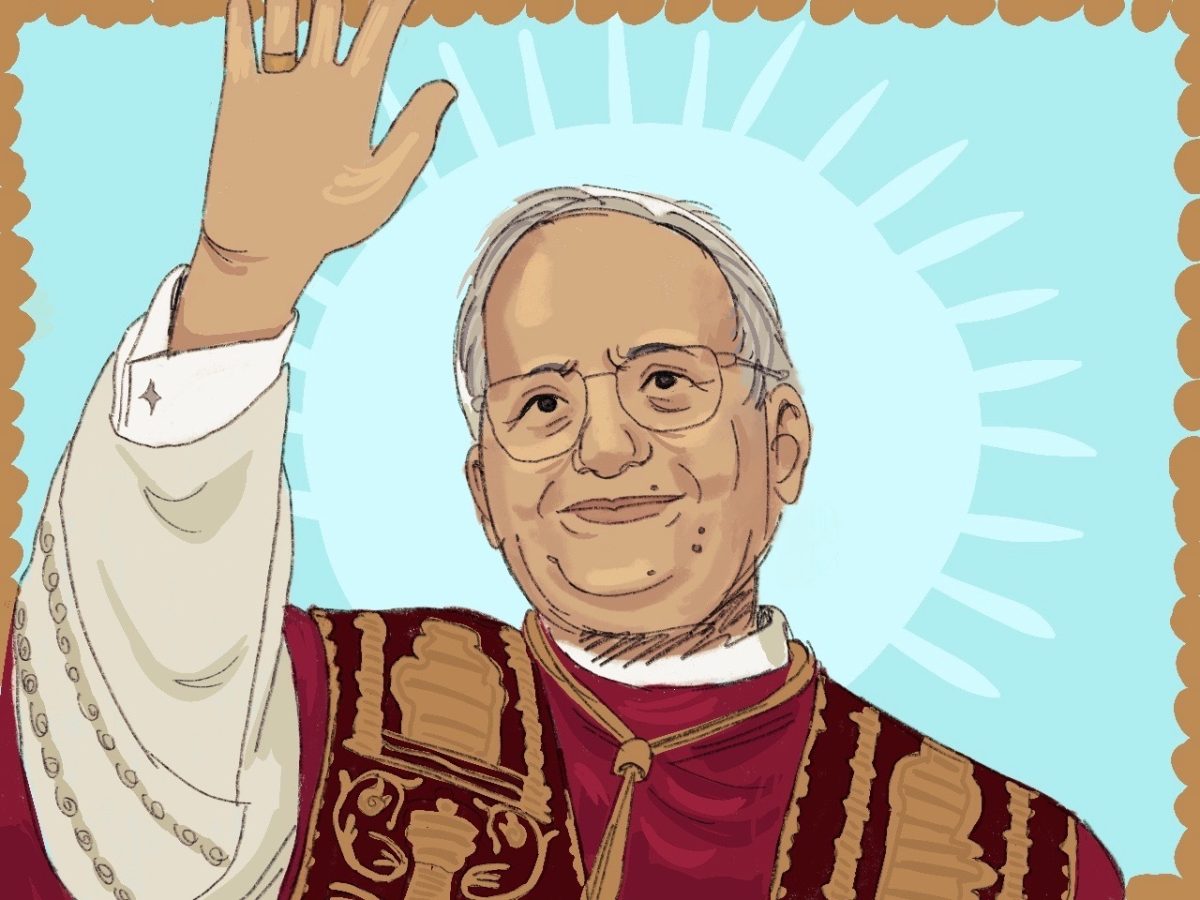

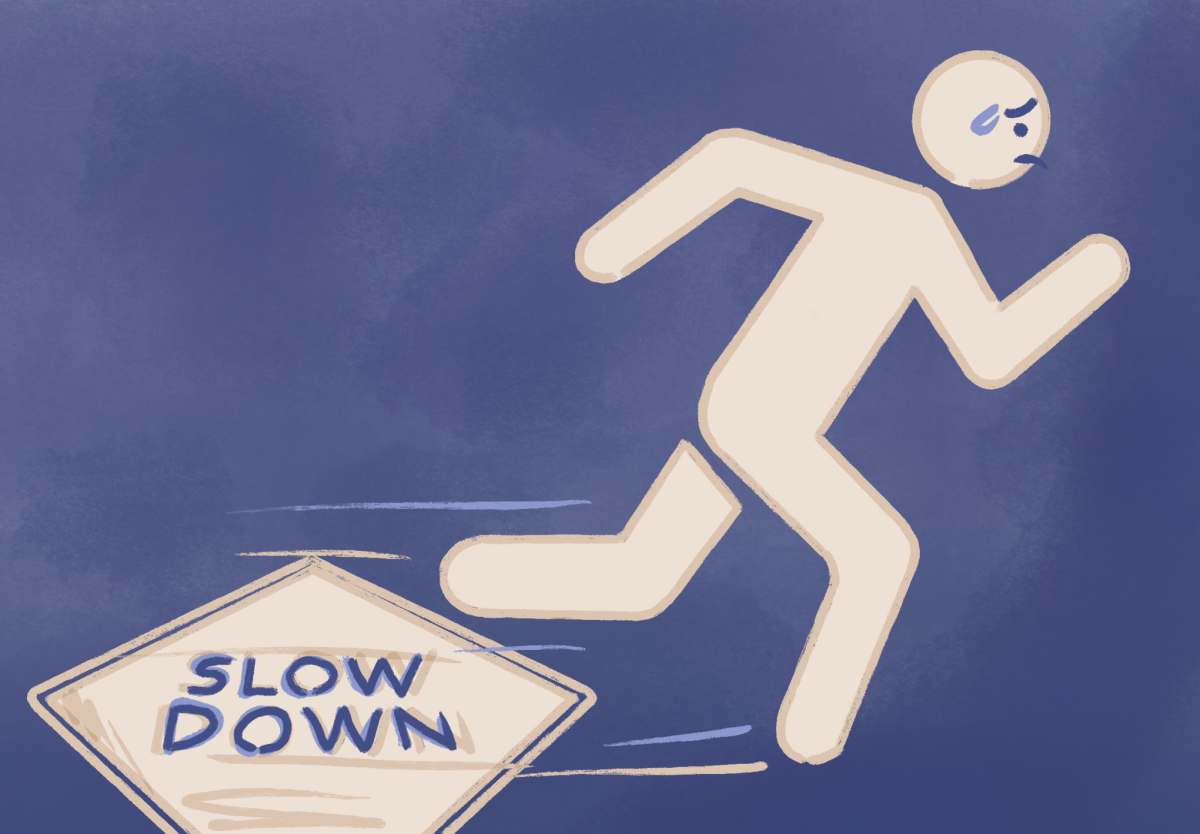


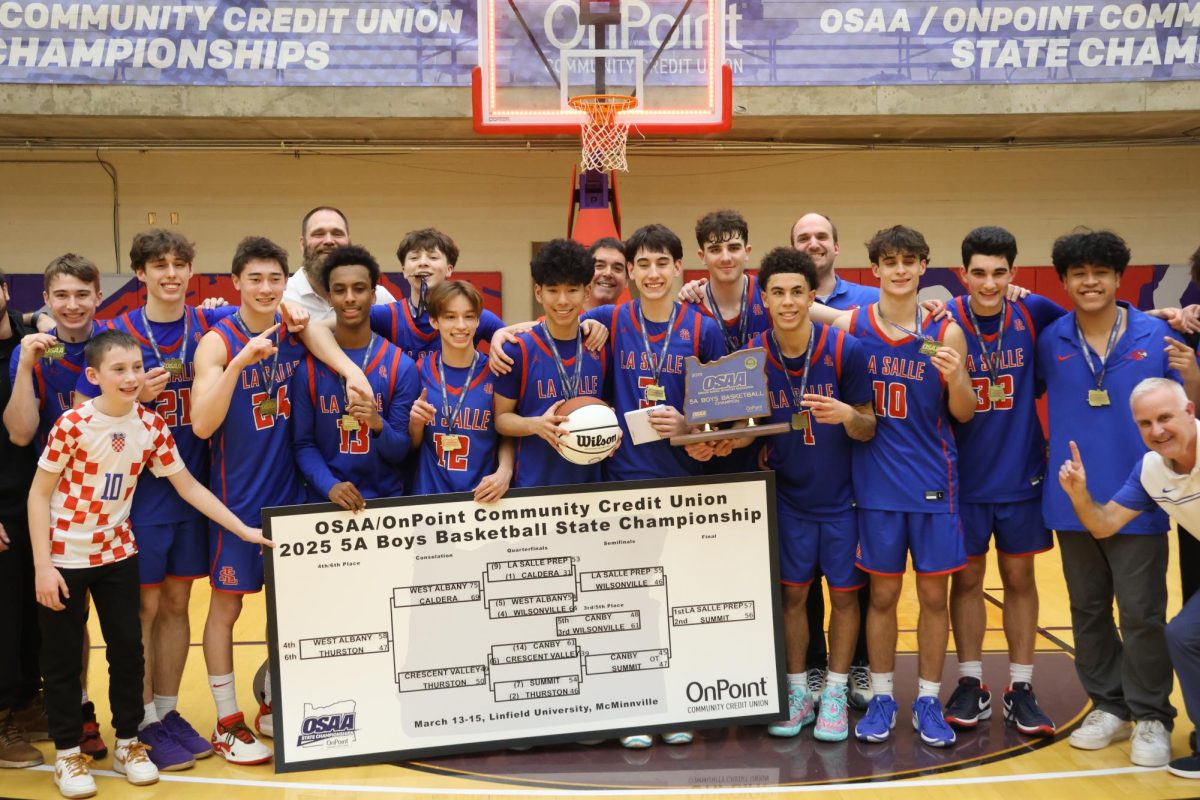
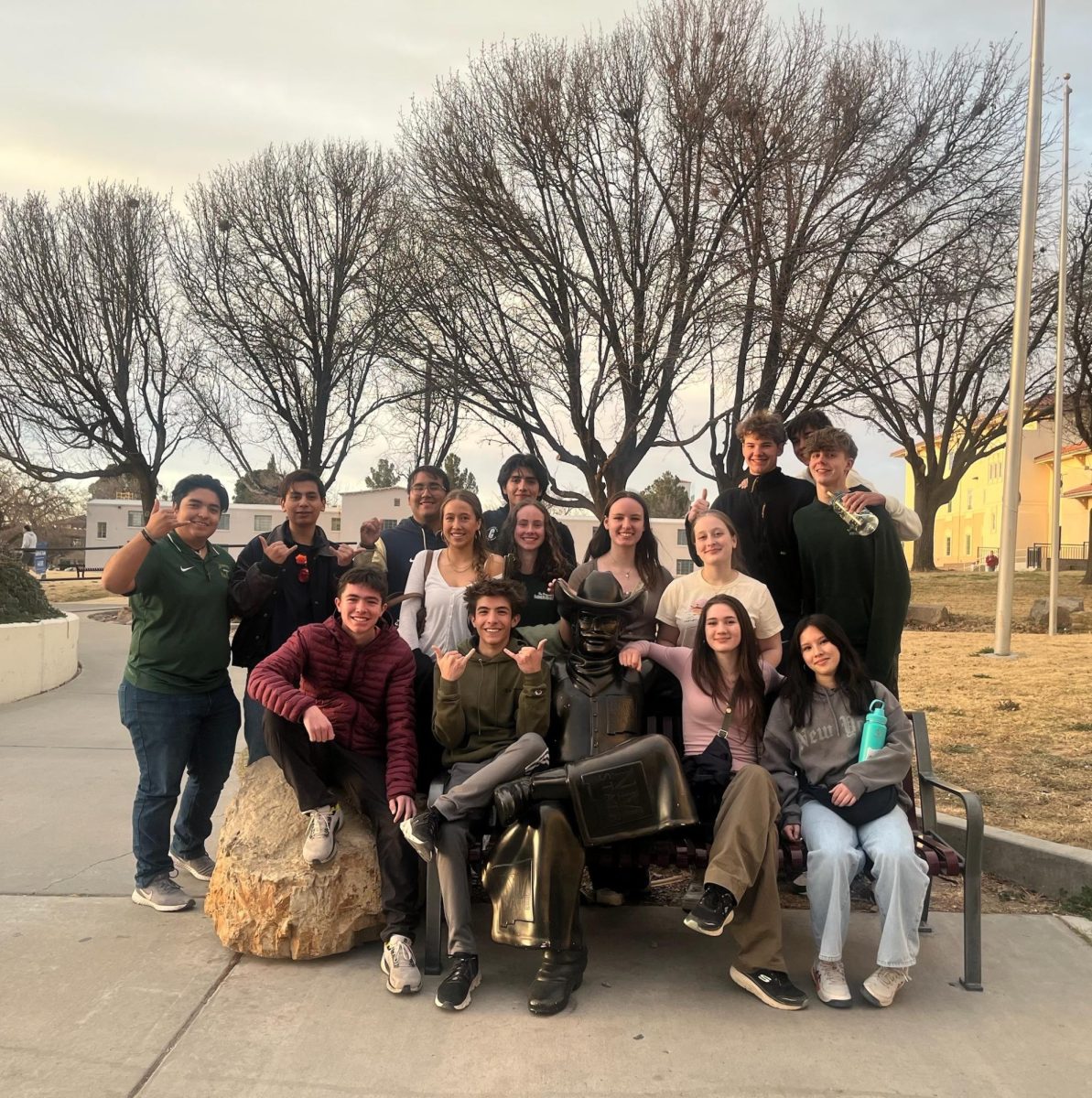
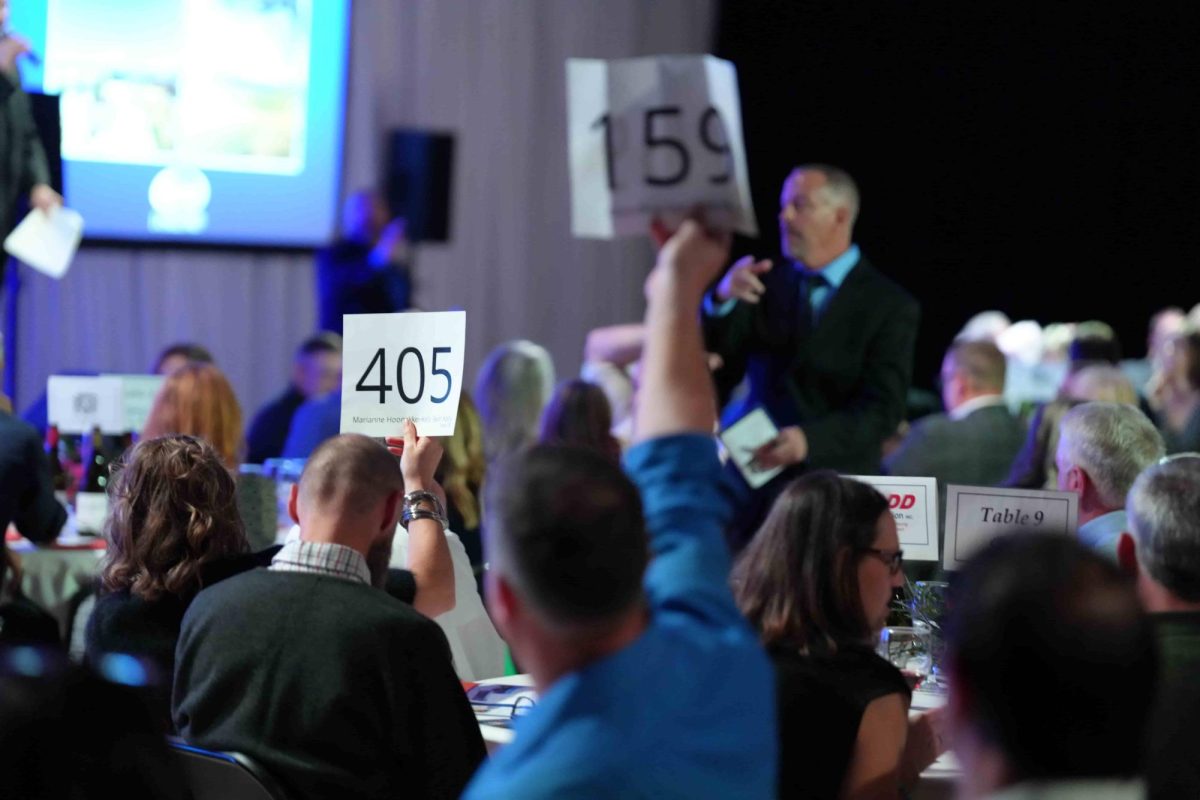

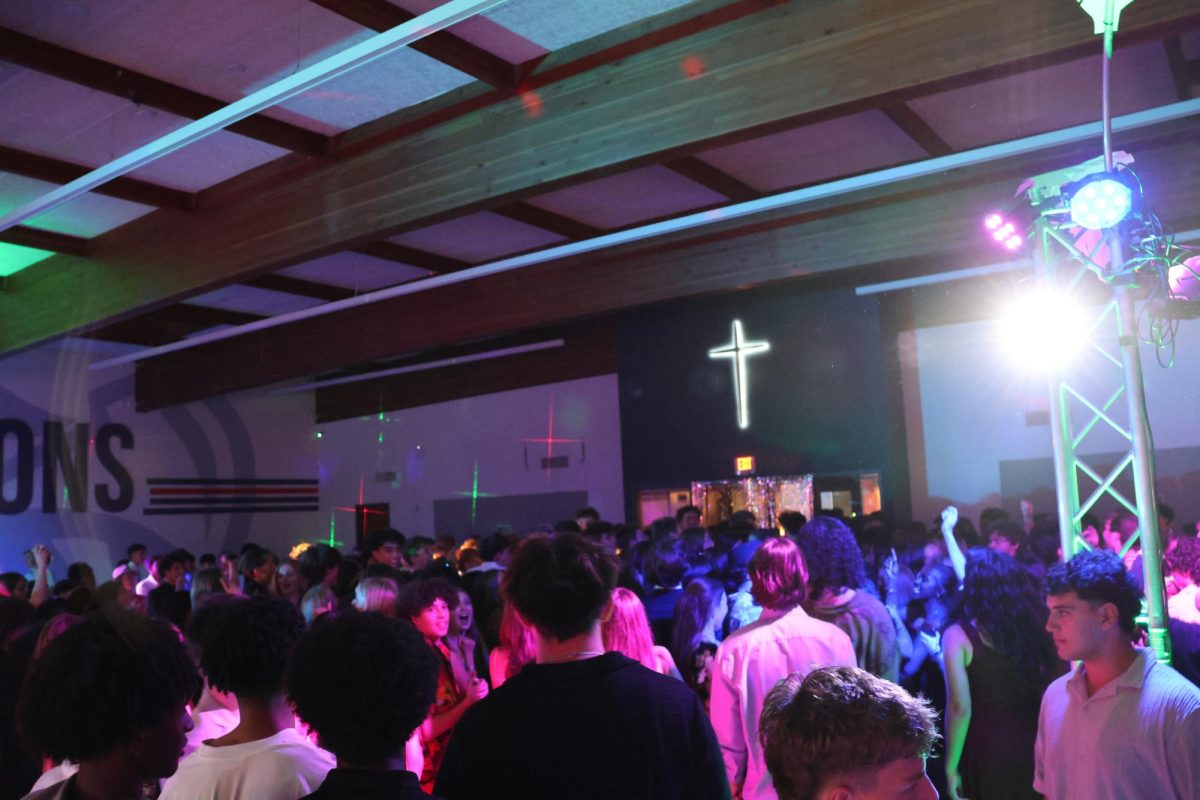
![Mr. Owen Furlong, the temporary Campus Safety Monitor, grew up near La Salle and described how Christ the King was “basically [his] backyard for a long time.”](https://lasallefalconer.com/wp-content/uploads/2025/10/115A2328-1200x800.jpeg)
